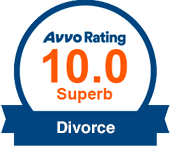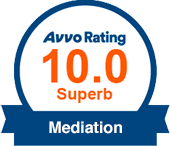Ellicott City Visitation/Access Lawyer
In some custody arrangements, one of the parents has full legal custody, while the other has visitation rights. In all custody cases that are decided by a judge, the court will make its decision based on what it believes is in the child’s best interest. As a parent, your interests are not taken into account whatsoever when it comes to court custody decisions. As such, it is important to work with an attorney to ensure that you end up being awarded the custody or visitation access that you are hoping for and that your child needs in order to thrive. Our Ellicott City visitation/access lawyer at Weinberg & Schwartz, L.L.C. can help create the ideal child custody and visitation plan for your family.
Physical Custody Vs. Legal Custody
Having physical custody means that your child lives with you, at least part of the time. Legal custody, on the other hand, means that you have legal decision making capacity for everything in your child’s life from where they go to school, to their day-to-day schedule. Sometimes, legal custody is split between the parents (called joint legal custody). If one parent has full legal custody, both may still have physical custody—the child lives with the parent who has legal custody, and primary physical custody, more days of the year than the parent who only has physical custody. Common parenting plans in which one parent has primary physical custody and the other has non primary physical custody include the following 1) non primary custodial parent has the children on the weekend, 2) non primary custodial parent has the children every other weekend, and 3) non primary custodial parent has the children one day during the week and one day on the weekend.
A parenting plan can be created by the two parties, or left to the court to decide if the parents cannot come to an agreement. The same goes with custody—if the parents cannot reach an agreement, the court will decide in the child’s best interest.
Visitation
Visitation is granted based on the child’s best interest as well. In rare cases, a parent may be denied any visitation or access from their child if the court decides that they are a detriment to their child’s well-being. For example, under §9–101 the court may deny visitation rights to a parent when there is evidence that child abuse or neglect has occurred, and that it is likely to happen in the future. In some cases, supervised visitation may be ordered by the court. The parent may only have access to the child under the supervision of staff at a supervised visitation center.
When The Child Gets Their Own Attorney
Under Maryland §1–202, a child may be appointed an attorney to advocate on their behalf. The types of attorneys listed below handle the following questions on behalf of the child:
- Child Privilege Attorney—Should confidential medical information (confidential information garnered by a child psychiatrist or other medical professional) be used in court?
- Child Advocate Attorney—Does your older (but still minor) child want a voice in court? If so, they may need a child advocate Attorney.
- Child Best Interest Attorney—What is in the child’s best interest for custody, modification, and visitation?
Contact an Ellicott City Visitation Attorney Today
The Ellicott City visitation and access attorneys at Weinberg & Schwartz, L.L.C. can help create the ideal child custody and visitation plan that you are seeking so desperately during these contentious times. Contact us today at 410-997-0203 to schedule a consultation.











